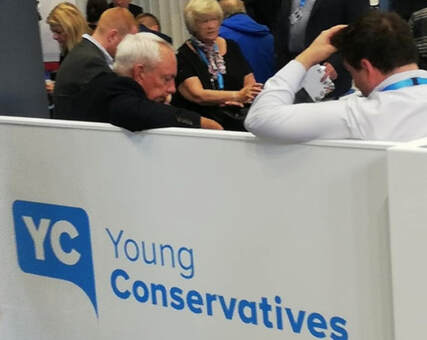
Forgive the allusion to Taranatino, but the recent Tory Party conference does indeed have more than a passing resemblance to that director’s Reservoir Dogs climactic standoff where the protagonists - all supposed to be part of the same gang - end the movie pointing guns at each other. While the specifics of the dispute are not in doubt – the market thumbs down to Truss’s mini budget that promised tax cuts without a reduction of public spending, leading to a collapse in the value of the pound and all that flowed from that – the underlying differences are debatable. On the one hand it has been portrayed as civilised one-nation Toryism versus feral capitalism. But as many of the anti-Truss Tory MPs have made clear, with the cost-of-living crisis dominating the lives of most working people, their opposition to the plans to remove the 45% rate of income tax on those earning more than £150,000 was about timing, not about scrapping the rate.
Contrary to the rules of the capitalist magicians’ club, Truss had pulled back the curtain and instead of presenting capitalism as a benevolent, munificent source of wealth for everyone, she exposed a desiccated, avaricious old monster. And right at a time when people were already on the streets and taking industrial action to defend their standard of living. No wonder some of the smarter Tories are having none of it.
A few weeks earlier the Labour Party had met in conference in Liverpool. In many ways it was a repeat of last year with a raft of left wing motions being supported by conference including: pay rises at least in-line with inflation; unequivocal support for all UK workers taking strike action and for joining picket lines, including all Labour MPs; a £15 minimum wage; opposition to privatisation, academisation and outsourcing; bringing services back in house and public ownership of the railways and Royal Mail and essential services and utilities. Other progressive motions on Care and the NHS were also passed but relevant only to England.
Of course, given that none of these will necessarily be part of a future Labour Party manifesto, it was what the Labour Party leadership itself proposed that reveals the likely direction of a future Labour Government.
While there were some left orientated proposals by the Labour Leadership, including nationalising rail, to be achieved gradually as the Train Operating Companies’ contracts expire and setting up a Great British Energy company, the detail of how these will work is yet to be made clear. Waiting for all franchises to run out is going to be a protracted process – some don’t run out till 2029 and while Great British Energy will not be an energy supplier but instead “about the management of the investments we believe are essential to unlock these markets and opportunities” precisely how this will operate has still to be spelt out. Nevertheless, any move towards more public control of the productive economy is to be welcomed, but this is miles away from the comprehensive, radical democratic, green, economic and social programme we need to begin the process of transforming Britain.
All of this means that the left in the community and in the unions has to continue its campaigns in the streets, in the council chambers, in the devolved parliaments and in the Labour Party to bring about the change we need. However it may appear at the moment, a politics based on neoliberalism and globalized financial capitalism is unsustainable, whether it’s managed by the Tories or right wing Labour, as long as we make it so.
This article is written by Vince Mills and features in the current ROSE bulletin available at https://rose-scotland.org/
A few weeks earlier the Labour Party had met in conference in Liverpool. In many ways it was a repeat of last year with a raft of left wing motions being supported by conference including: pay rises at least in-line with inflation; unequivocal support for all UK workers taking strike action and for joining picket lines, including all Labour MPs; a £15 minimum wage; opposition to privatisation, academisation and outsourcing; bringing services back in house and public ownership of the railways and Royal Mail and essential services and utilities. Other progressive motions on Care and the NHS were also passed but relevant only to England.
Of course, given that none of these will necessarily be part of a future Labour Party manifesto, it was what the Labour Party leadership itself proposed that reveals the likely direction of a future Labour Government.
While there were some left orientated proposals by the Labour Leadership, including nationalising rail, to be achieved gradually as the Train Operating Companies’ contracts expire and setting up a Great British Energy company, the detail of how these will work is yet to be made clear. Waiting for all franchises to run out is going to be a protracted process – some don’t run out till 2029 and while Great British Energy will not be an energy supplier but instead “about the management of the investments we believe are essential to unlock these markets and opportunities” precisely how this will operate has still to be spelt out. Nevertheless, any move towards more public control of the productive economy is to be welcomed, but this is miles away from the comprehensive, radical democratic, green, economic and social programme we need to begin the process of transforming Britain.
All of this means that the left in the community and in the unions has to continue its campaigns in the streets, in the council chambers, in the devolved parliaments and in the Labour Party to bring about the change we need. However it may appear at the moment, a politics based on neoliberalism and globalized financial capitalism is unsustainable, whether it’s managed by the Tories or right wing Labour, as long as we make it so.
This article is written by Vince Mills and features in the current ROSE bulletin available at https://rose-scotland.org/
 RSS Feed
RSS Feed